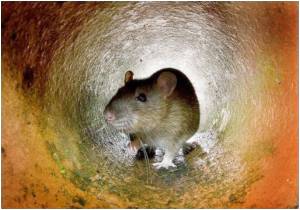
Now, at the 2013 Annual Meeting of the American Association for the Advancement of Science (AAAS) in Boston, Courtine has described this research in detail and the next steps towards clinical trials to be done in Switzerland.
Courtine holds the International Paraplegic Foundation (IRP) Chair in Spinal Cord Repair at EPFL. At AAAS, in a symposium titled, "Engineering the Nervous System: Solutions to Restore Sight, Hearing, and Mobility," he outlines the range of neuroprosthetic technologies developed in his lab, which aim to restore voluntary control of locomotion after severe spinal cord injury.
He explains how he and his colleagues are interfacing the central nervous system with stretchable spinal electrode arrays controlled with smart stimulation algorithms - combined with novel robotic rehabilitation - and shows videos of completely paralyzed rats voluntarily moving after only weeks of treatment.
Courtine expects to begin clinical trials in human patients within the next two years.
At AAAS, he presents the 9 million euro European project NeuWalk, an effort dedicated to the transfer of technology from rats over to humans with spinal cord damage through development of effective neuroprosthetic systems for rehabilitation.
Advertisement
The second phase will take place at the newly planned EPFL Valais Wallis academic cluster in Valais, Switzerland, to be inaugurated in 2015.
Advertisement
This research program has the potential to develop effective treatment paradigms for rehabilitating individuals with severe spinal cord injury, for whom current rehabilitative treatments do not restore the ability to stand or walk.
Source-ANI










